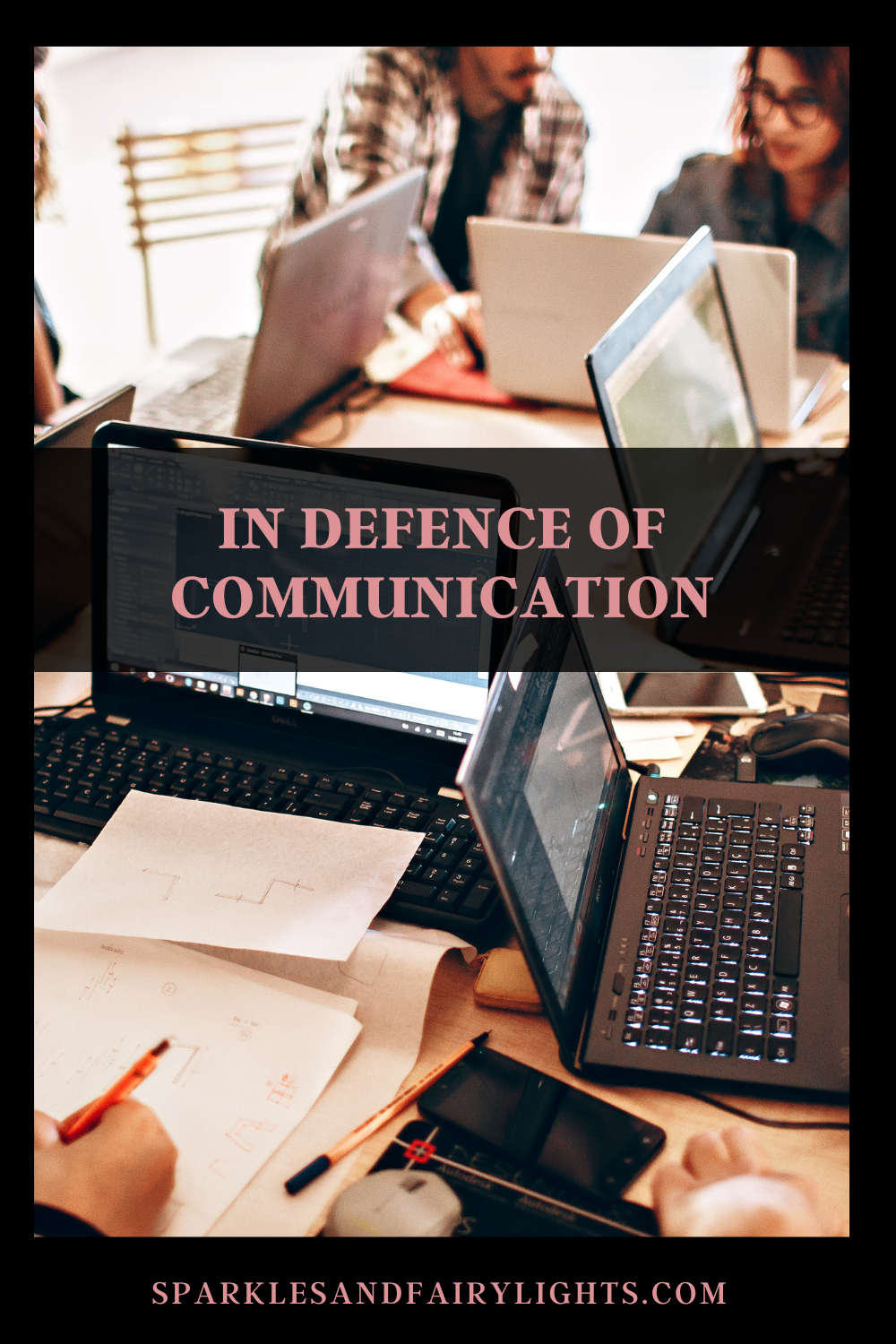In defence of communication
I was flabbergasted one day, actually completely blown out of the water, dumbfounded and rendered completely speechless when the idea was bandied about that Corporate Communication as a discipline was not VITAL.
Is Communication vital?

As a Communication Science graduate, this statement was met with extreme scepticism. So absurd did I consider the statement that I did not have a word to defend its substance. Shock and disbelief surely registered on my face as I ruminated on an idea that I considered quite ludicrous if not outright ridiculous, completely nonsensical and even somewhat daft.
To say that this statement was contrary to the belief I held in every fibre of my being was an understatement, yet I did not have an adequate retort (Do I ever?), so self-evident was the importance of corporate communication to my mind. Instead, so befuddled was I that I am sure that I had the look of a deer caught in the headlights. I do not believe that there is a person on this planet that cannot make a case for the vital nature of communication in and of itself.
Flawed communication processes
How often has there not been a chain of events precipitated by something rather inane only to escalate into something else entirely: be it a heated debate, a quarrel, a falling out, and the like; some of epic proportions just to discover an error of judgement rooted in a flawed communication process that has misfired for various reasons.
Communication and misunderstandings often are at the heart of a good drama or love story. The resolution of a story often reveals assumptions or misconceptions that have been left to brew in the absence of adequate scrutiny. Fortunately, happily ever after is often the outcome in the rom-com genre; if only there wasn’t that pesky miscommunication in the middle.
How then, can its very essential nature even be questioned? The idea that a business then can get along without adequate communication and communicators to take its message authoritatively to the world cannot be seen as anything but tantamount to recklessness surely? Or can it?
Granted, a decision maker could develop such a view due to having seen less-than-stellar results, having worked poorly trained communicators or those who are not committed to the cause and who give less than their best. This could definitely lend credence to such a view, and factors like these could certainly fuel a misguided belief that communication itself is not vital.
Not all jobs are equal
Furthermore, would it be considered true that people and systems of communication that they use are becoming redundant, and is something at the very heart of what it means to be human replaceable, especially now in the light of Artificial Intelligence (AI) as well? A friend had cautioned me on this aeons ago, she had warned me that communication professionals and support staff’s heads were of the first to roll when restructuring reared its ugly head. I agree, having been specifically warned, that the sentiment expressed about certain jobs regarded as less valuable than others, for example, engineers, should not have come as a surprise.
Just last week, a senior minister in the South African government had to issue an apology for statements made in a resurfaced video where she appeared to condemn the arts in favour of skills development in other sectors. In hindsight, an unfortunate choice of words in what is already a minefield led to resentment and the need for an apology and renewed the debate about what is considered important. The South African Government News Agency shed light on her comments:
In a short clip, the Minister stressed the need to increase the number of young people to be trained in “critical skills” in Africa.
“I don’t think we want more arts trainers; I’m sorry for the arts people,” she said in the interview.
But I think, science is very important, technology and engineering because those are the skills that we desperately need as well in the finance and economic sectors. We need highly trained people and then information and communication technology,” she said at the time.
To be fair, those are the skills so urgently needed in our country and at the very least a balanced approach should be taken. But can business owners, even with all the communication technology at their disposal, afford to botch their communication with an ill-timed or ill-informed message to the world at large today? One need not look too far to see botched press releases from CEOs and other decision makers who have failed to understand their target markets and who have unwittingly found themselves mired in controversy and a hit to the bottom line. We will discuss more of this in the time to come.
Crux of the matter
It certainly gives me plenty to ponder. I plan on digging deeper into this topic: from what experts have to say on corporate communication and communication in general to nuggets gleaned from personal lived experience to garnering knowledge of the discipline itself in its various facets as well as day-to-day communication. I will definitely be taking a fresh look at what makes it effective or ineffective, etc. Hopefully, I will be able to refute anyone who glibly implies that communication in the workplace can be relegated to the side-lines or replaced altogether.
Worth noting: The tools to communicate have never been more bountiful than now, but it is probably prudent to remember what Dale Carnegie has so eloquently articulated:
I believe this is the crux of the matter: we do not always know how to communicate well. I can relate and will endeavour to learn and grow, in this arena, particularly in its application for small and medium enterprises, and promise to keep you posted as I go along.
Dale Carnegie
Latest posts
No-stress tresses to match beautiful dresses
Since we have been discussing the topic of beautiful shoes, dresses, etc., we need #hair to match don’t we? It is definitely not known as a woman’s crowning glory for nothing. Beautiful hair has always provided enchantment and admiration.…
Happy feet, happily ever after!
Do you remember that cute animation film, Happy feet? And what about the protagonist in the story? The animated, inspiring penguin, which shows up as a tap-dancing enigma who lights up the screen with charisma and energy. It inspires one…
Fabulous style in our 40s
“Elegance is not being noticed; it’s about being remembered.”Giorgio Armani Giorgio Armani famously said, “Elegance is not being noticed; it’s about being remembered.” Such is the dramatic impact art, fashion and dressing can have on an individual. Indelible impressions imprinted…
Challenging your comfort zone
As we age and find ourselves in our midlife years, there comes a time when we wonder about whether unfulfilled dreams for our lives will ever come to pass, whether it is too late to go after that daring career…
Letting go of these 10 things – 40s living
Why should you stop drinking or smoking in your 40s? And what about thinking bad thoughts? Let go of what you may ask? Well, there are certain things that are no longer beneficial to our #bodies, minds and souls as…
- The human value and capacity driving copywriting in 2025 - March 6, 2025
- Authenticity, professionalism and hope in a curated world - February 6, 2025
- Authentic epiphany watching the trailer for “With love, Meghan” - January 27, 2025













